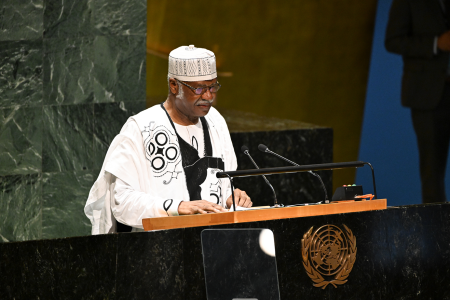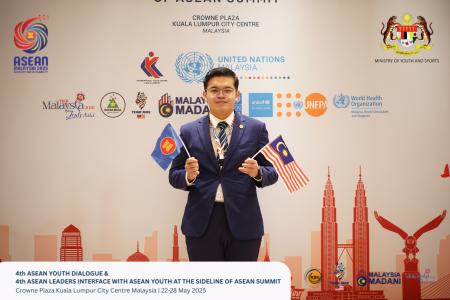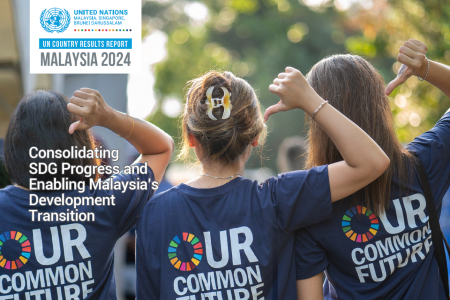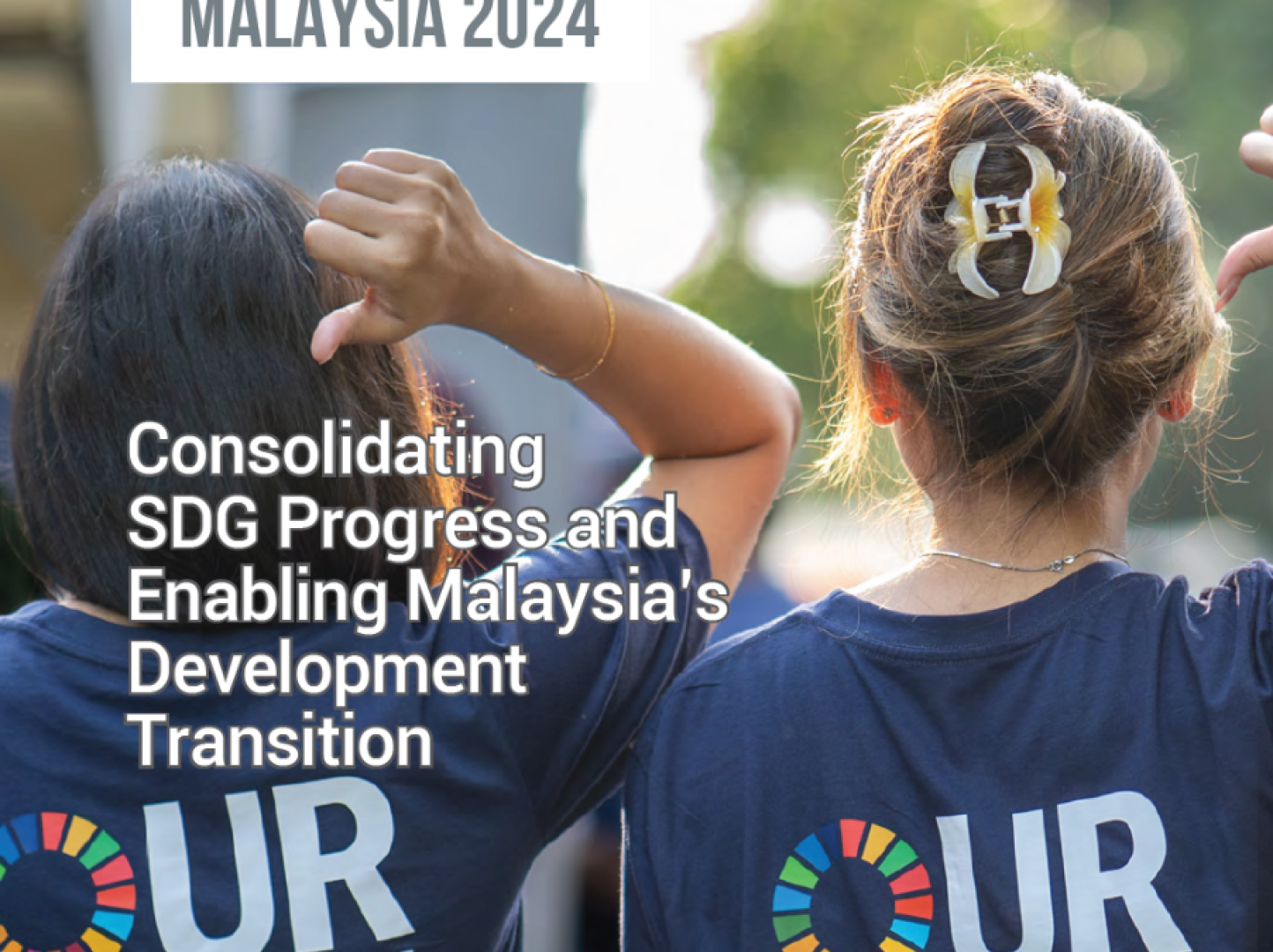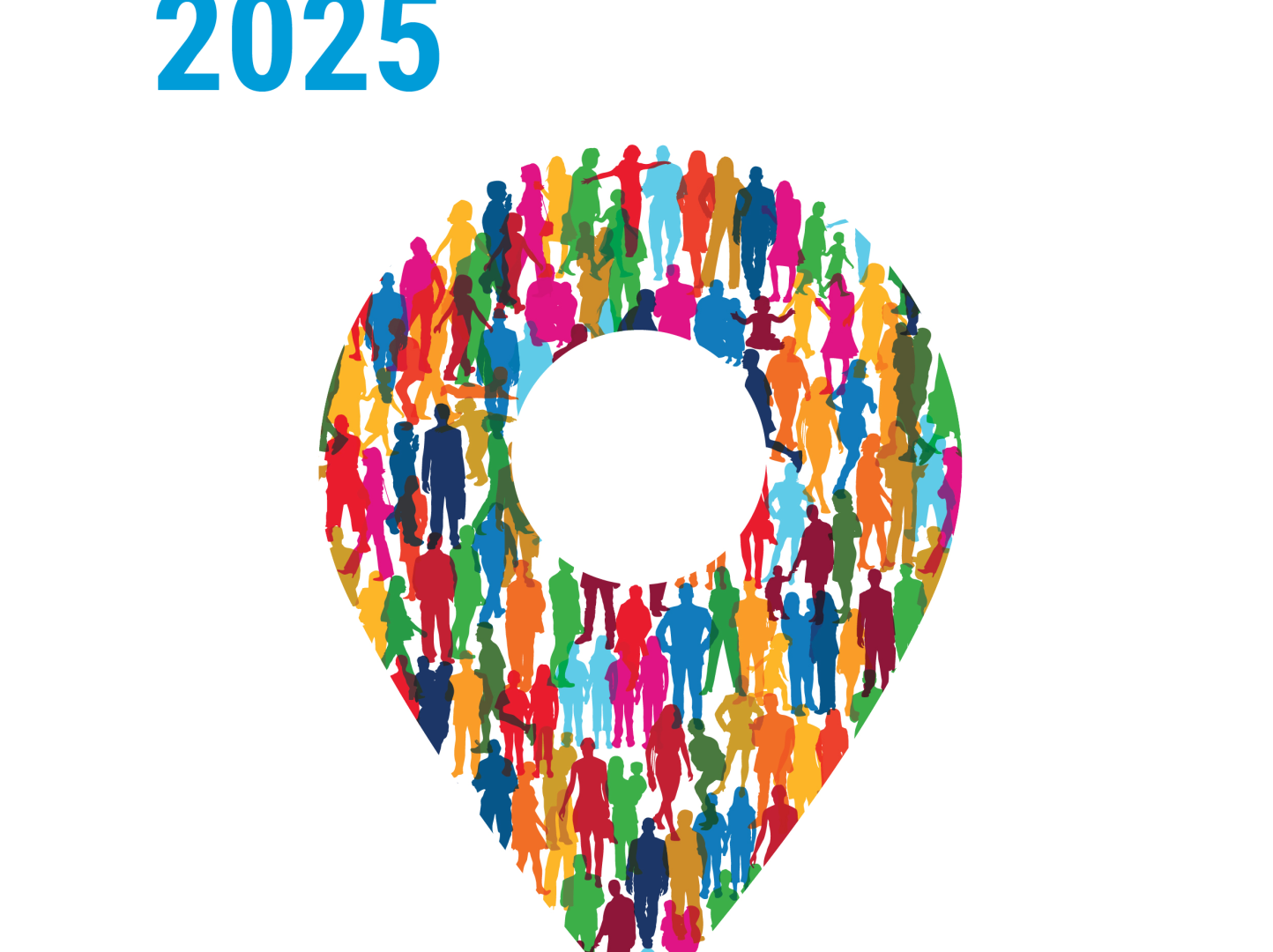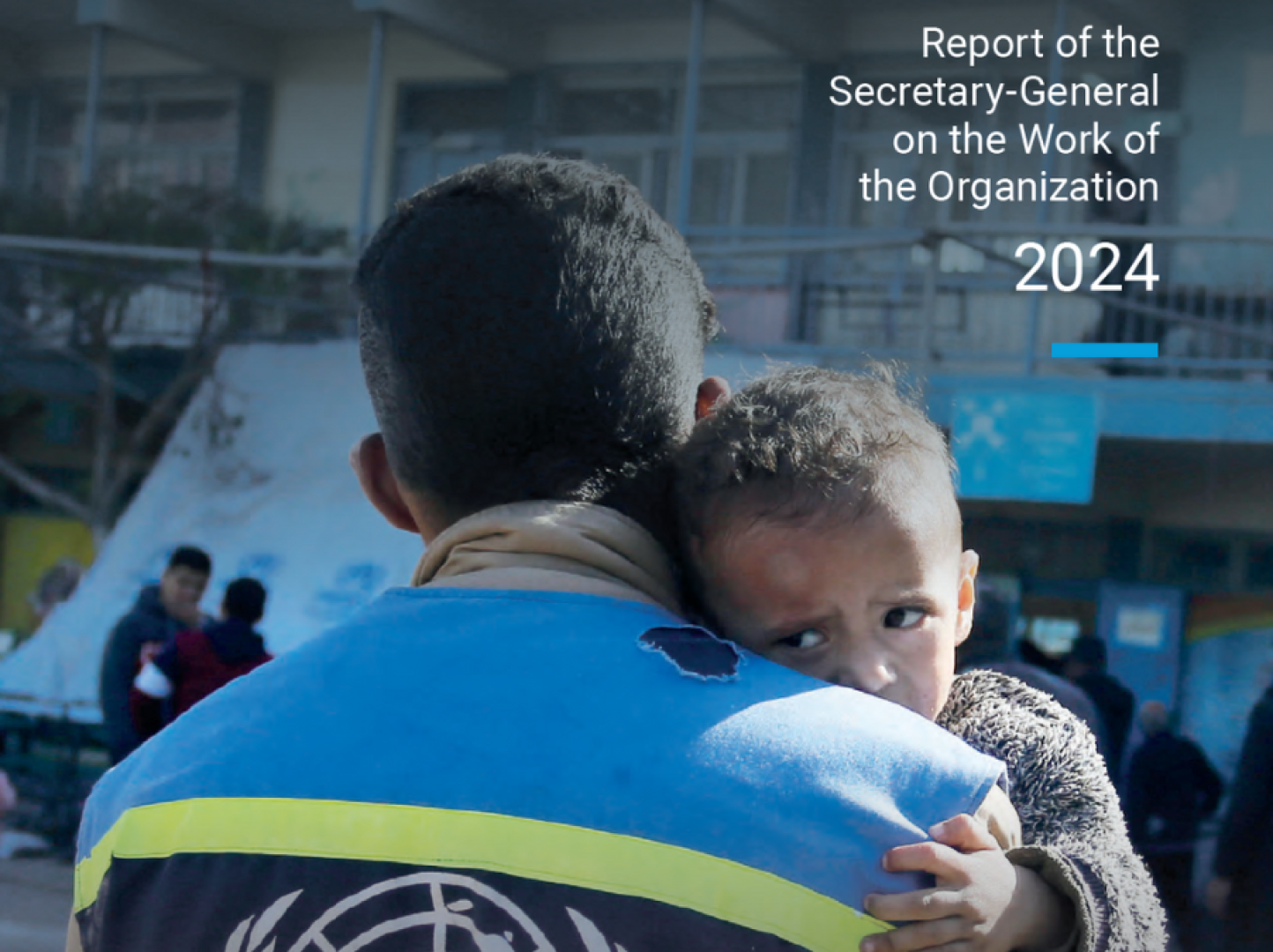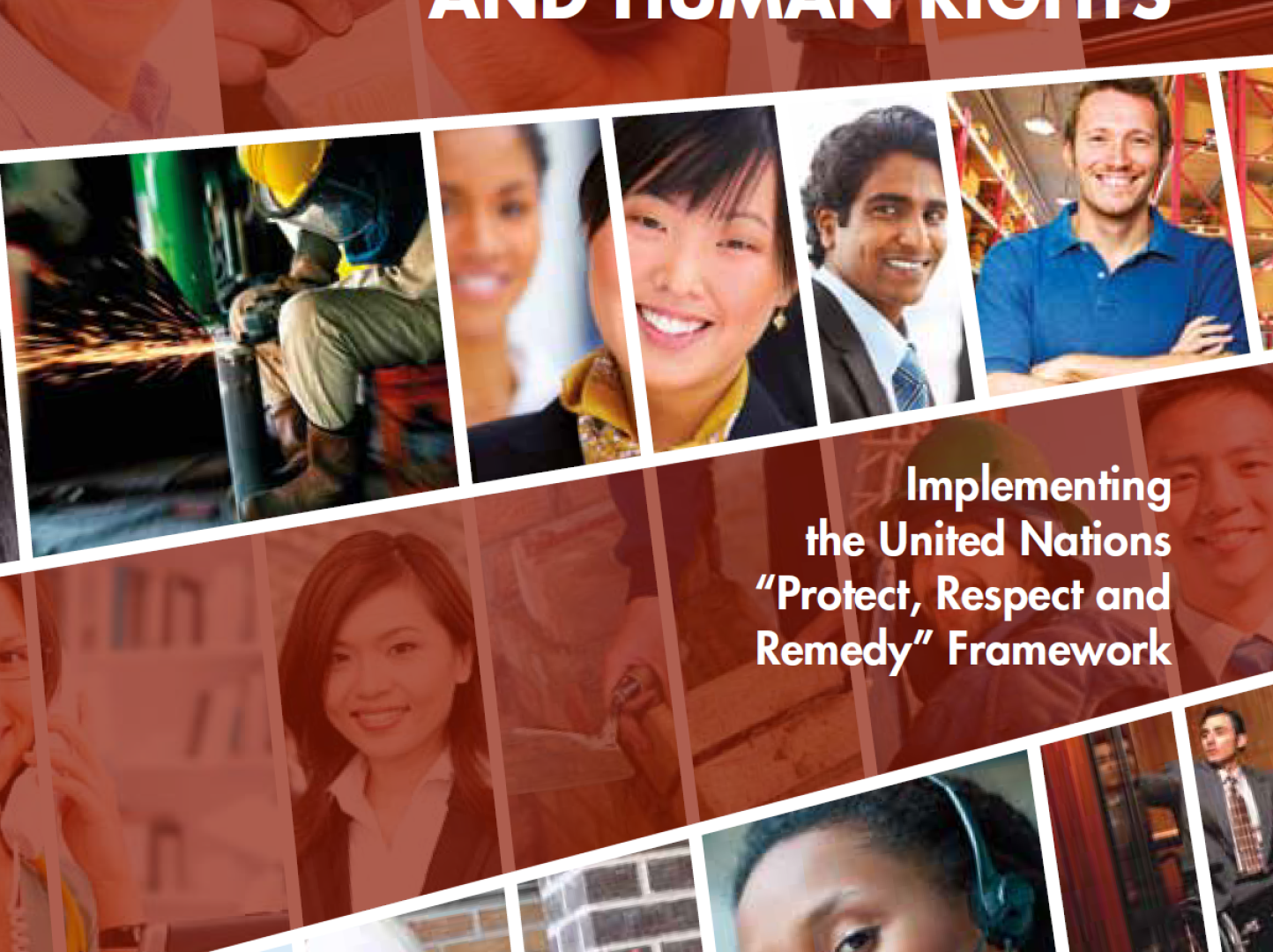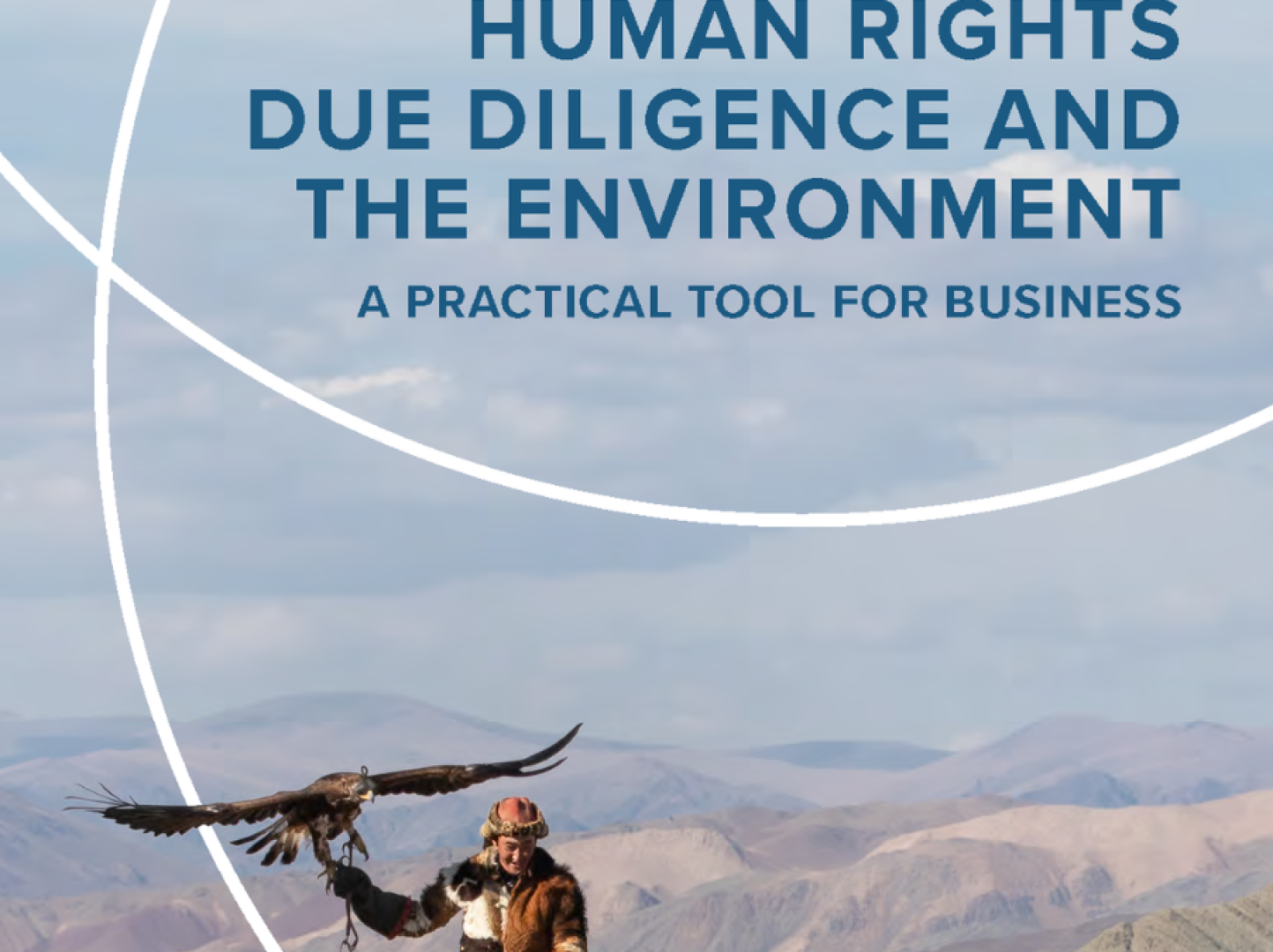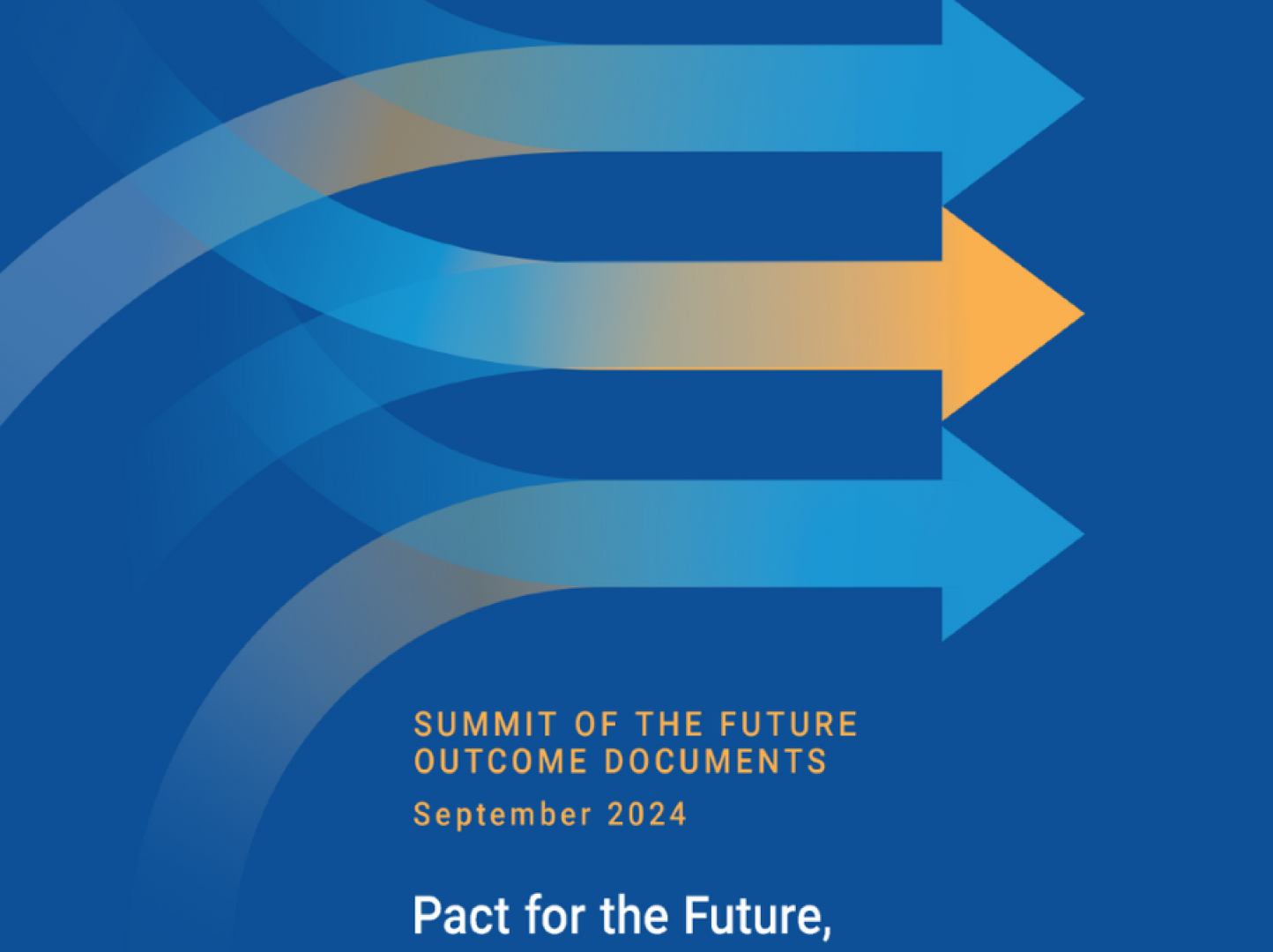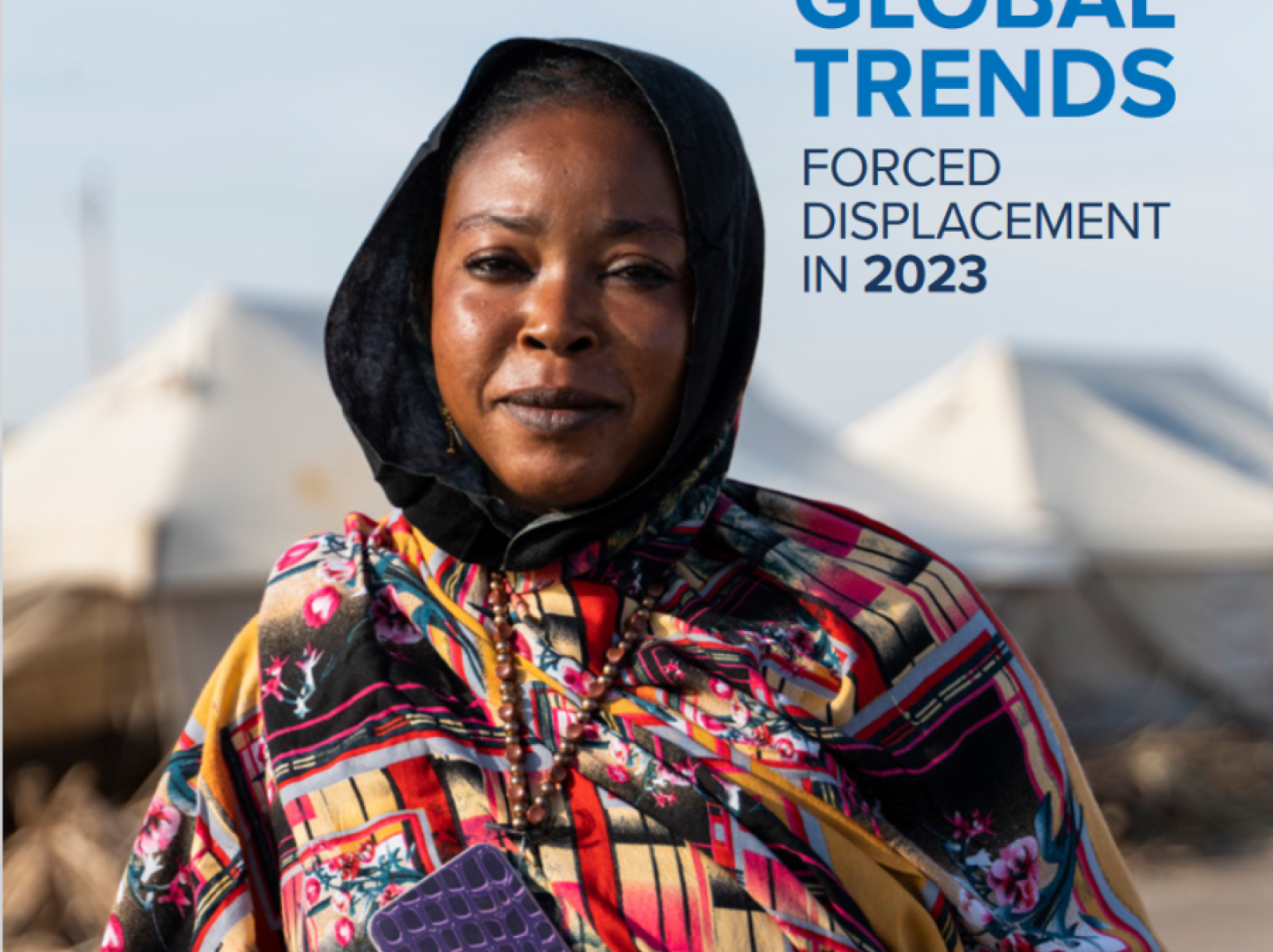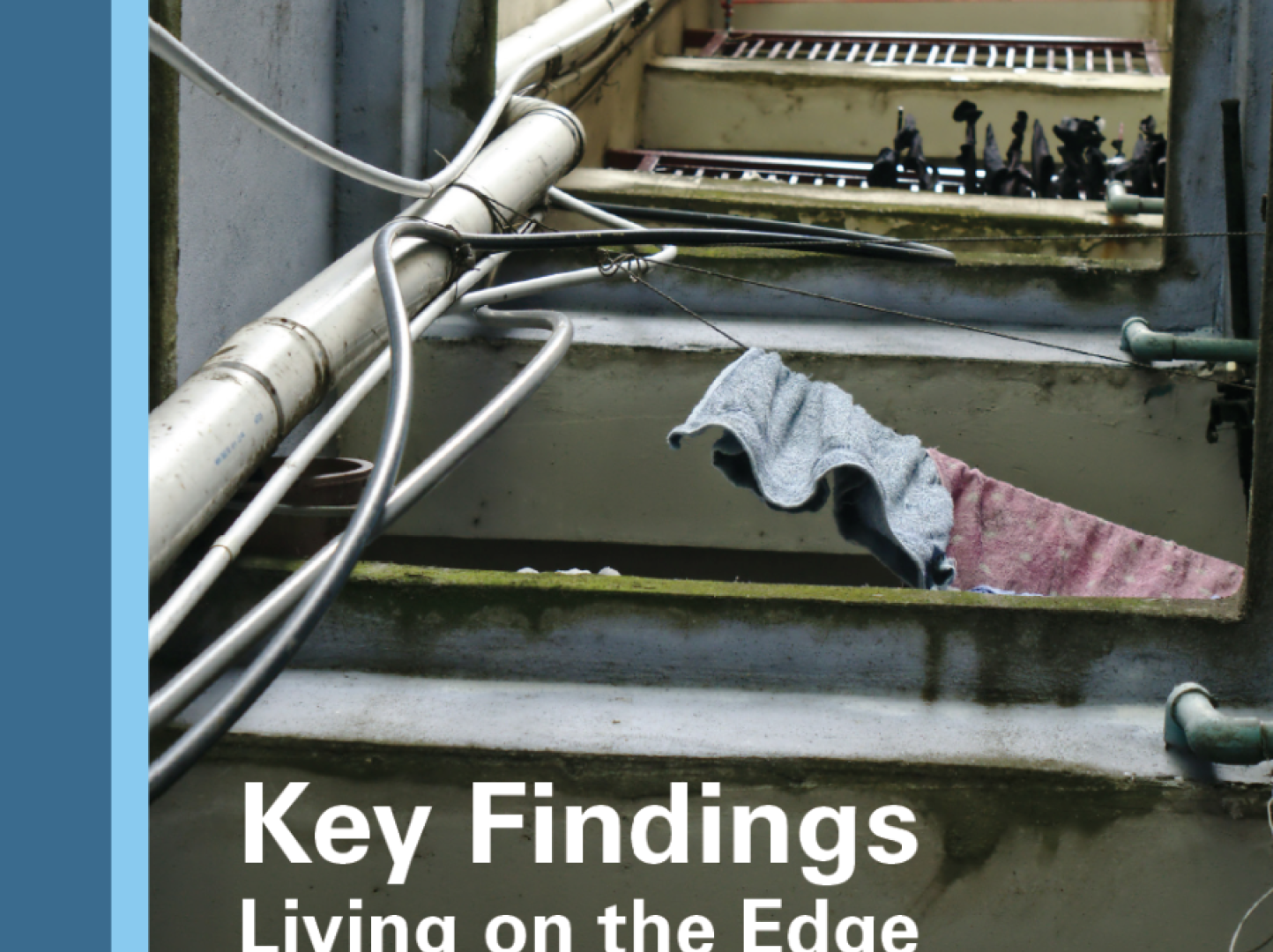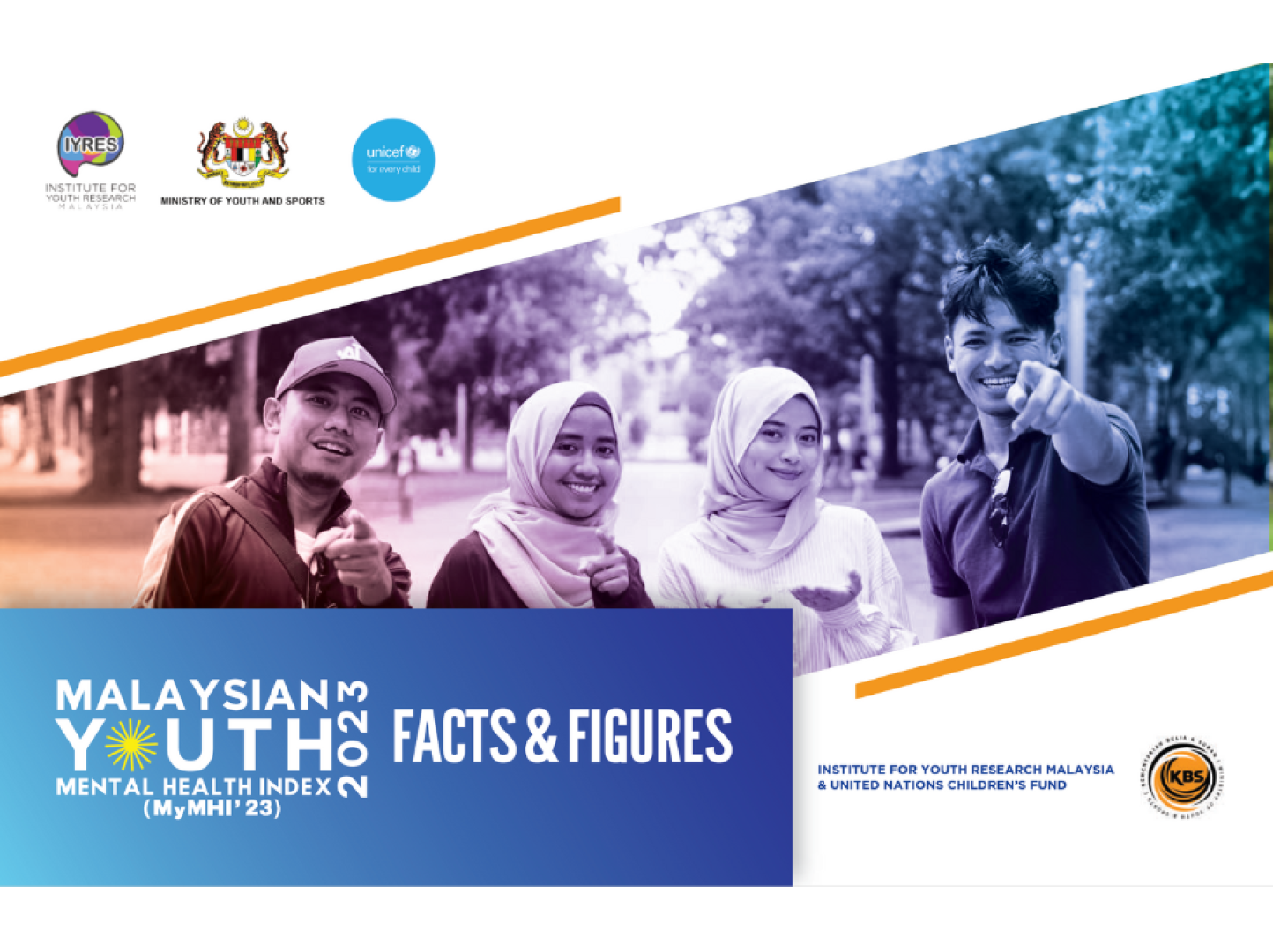Latest
The Sustainable Development Goals in Malaysia, Singapore and Brunei Darussalam
The Sustainable Development Goals are a global call to action to end poverty, protect the earth’s environment and climate, and ensure that people everywhere can enjoy peace and prosperity. These are the goals the UN is working on in Malaysia:
Take Action
10 July 2024
Summit of the Future
The Summit is a high-level event, bringing world leaders together to forge a new international consensus on how we deliver a better present and safeguard the future.
1 of 5
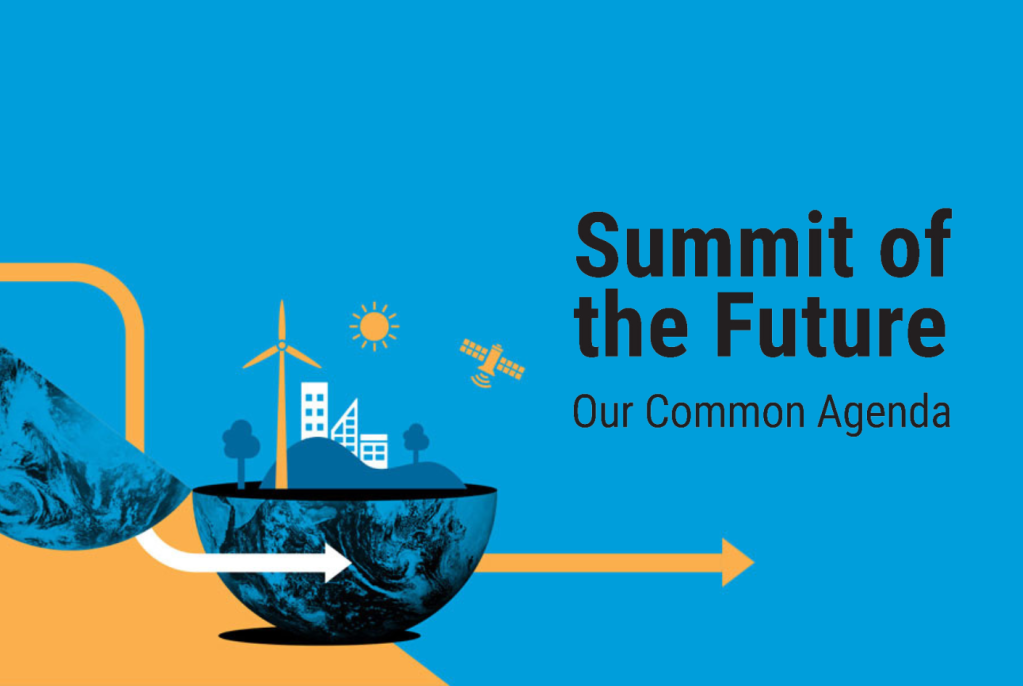
Publication
04 July 2024
UN Country Results Report Malaysia 2023: Supporting Malaysia’s Path to Sustainability and Inclusion in Turbulent Times
The 2023 Country Results Report provides a spotlight on the key results of the UN system’s programming and advocacy in 2023. Working under the umbrella of the UN Sustainable Development Cooperation Framework 2021-2025 (CF) and drawing on information available on our website via the UN INFO platform, this report reflects the dynamism of 2023. In line with the UN development system reforms, the UNCT continues to deliver tangible results, under the leadership and coordination of the Resident Coordinator.The UNCT, in collaboration with its diverse partners, works towards fostering an equitable and inclusive economy guided by a human rights approach to development. Programmes include enhancing the skills of women entrepreneurs, combating forced and child labour in the palm oil industry, expanding social protection, and ensuring youth access to technical and vocational education and training (TVET). Furthermore, the UN remains dedicated to assisting the Government in safeguarding Malaysia's abundant biodiversity, protecting the environment and combating climate change. The UN remains resolute in fulfilling its commitments to the Government and civil society by actively exploring new opportunities to accelerate SDG progress through systems and institutional strengthening.
1 of 5
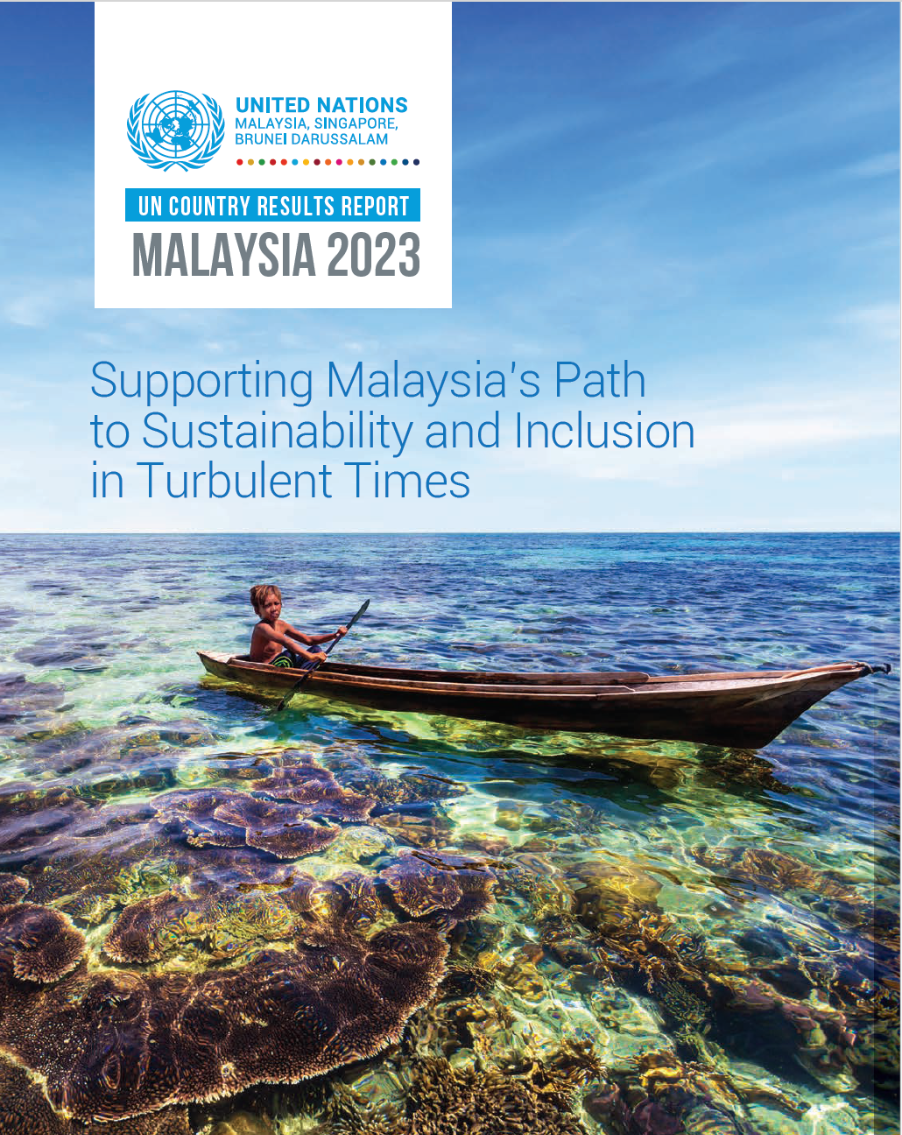
Story
20 June 2024
#WorldRefugeeDay: Local Municipal Council leads the way in finding solutions for harmonious living of residents – Malaysians and refugees alike
Read the original story hereIt was the morning of Eid Al-Adha. Since the early hours, a neighbourhood field in the district of Ampang Jaya an hour outside Kuala Lumpur became the gathering point for communities of Muslim refugees and migrants.Myanmar refugee Rashidah and her seven children were among them. Her family had gathered on the field with others from the neighbourhood to observe Eid Al-Adha with a ritual sacrifice of livestock, or qurban.Eid Al-Adha is a revered observance among Muslims, coinciding with the final rites of the Hajj pilgrimage in Saudi Arabia. Devout Muslims slaughter livestock and share two-thirds of the meat with the poor.“We can’t travel to perform the holy pilgrimage to Mekah, so this is a way to practice our faith,” Rashidah said.Rashidah has lived as a refugee in Malaysia for 37 years, after her family fled persecution in Myanmar. A single mother raising young children alone, Rashidah earned a wage for years working as a cleaner. Now, her grown sons also work to augment the family income.“We all pooled our money to buy a cow for qurban this year,” said Rashidah. “All the meat will be distributed to the mosque and to the poor – Malaysians and non-Malaysians. We’re not keeping any meat. We will give to all who need it.”There are currently approximately 189,000 refugees and asylum-seekers in Malaysia, some of whom are Muslim. Many, like Rashidah, practice Eid Al-Adha with the ritual sacrifice of livestock animals.“We contacted the Municipal Council of Ampang Jaya - the local authority responsible for the cleanliness and well-being of residents in the area – to seek a discussion on helping refugees comply with standardised procedures when conducting qurban,” said Adli Zakuan Zairakithnaini, UNHCR head of humanitarian affairs.“Refugees have no legal status in the country. Living in the fringes of society, especially in a foreign land, it is understandable how some refugee communities may lack full understanding of domestic regulations, procedures, and practices, and the impact of their behaviour to local communities.“Our priority is to ensure these gaps in knowledge are addressed to reduce any friction between refugees and host communities that may arise from misunderstandings. Our interest is that refugees conduct practices like qurban within the parameters of local regulations and procedures.”Dr Ani Ahmad, Chairman of the Municipal Council of Ampang Jaya, explained the Municipal Council’s intentions to better regulate qurban conducted by foreigners in the area.“It is sometimes difficult for foreigners to conduct qurban at mosques or designated slaughter centres. Often, they resort to performing the qurban ritual at inappropriate locations like vacant lots, in housing areas, or industrial areas. This is often disruptive, unhygienic, and insensitive to the sentiments of local populations,” said Dr Ani.UNHCR, together with Government departments involved in managing the qurban ritual as well as representatives from local mosques, were invited by the Municipal Council for a series of discussions on how qurban was conducted by foreigners, including refugees, and how to better manage it collectively.“The Municipal Council designated four locations where foreigners could conduct qurban in the district,” said Dr Ani. “We agreed to provide amenities such as tents, clean water, waste disposal bins, cleaners, and traffic control.” Ahead of Eid Al-Adha, UNHCR rapidly produced simple and clear guidance for refugee communities on local norms and practices, as well as regulations and agreed procedures around conducting livestock sacrifice, including safety and hygiene practices, as well as consequences and penalties for non-compliance.These were then mass distributed through a variety of channels used for communicating with refugees, including through digital instant messaging platforms and UNHCR’s Refugee-Malaysia.org information portal. UNHCR also engaged refugee community representatives on the ground to disseminate the information and help answer questions.On the morning of Eid Al-Adha, a UNHCR team was on the ground to monitor the implementation of this new procedure. Officers from the Municipal Council, including Dr Ani, were also present.“Refugee community focal points had informed the Municipal Council in advance how many families would be conducting qurban in each location and how many cows would be sacrificed,” said Adli. “With structures and plans in place, we saw a smooth implementation of the qurban ritual in the four designated locations.“UNHCR is deeply appreciative to the Municipal Council of Ampang Jaya for its exemplary leadership in identifying and implementing a solution that benefits the well-being of all residents – refugees, migrants, and Malaysians alike.”Dr Ani said that managing the qurban rituals this way reduced complaints from local residents, especially around issues of the disruption to neighbourhoods, cleanliness and hygiene of slaughter locations, and traffic congestion while activities were underway.“This kind of cooperation helps the Municipal Council more effectively carry out our responsibilities. It creates a harmonious environment with the local population and ensures every segment of society has access to better living conditions,” said Dr Ani. “We hope to see more of such cooperation in the future in line with the aspirations of the Sustainable Development Goals.”
1 of 5
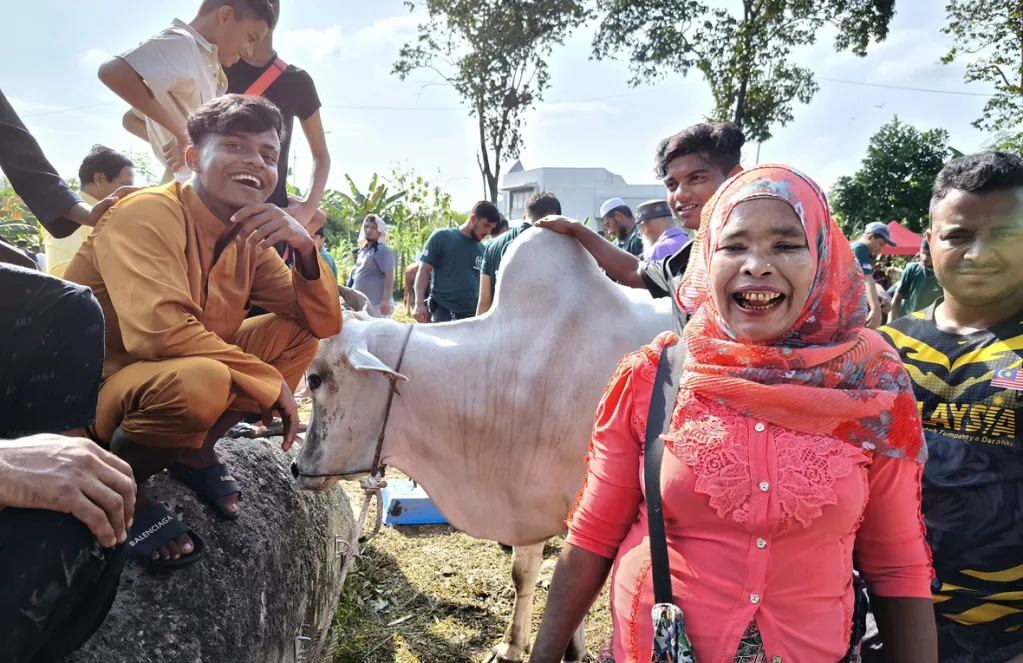
Story
13 June 2024
UN in Malaysia partners with Ministry of Foreign Affairs on Summit of the Future briefings
In the lead up to of the Summit of the Future (SOTF), the UN in Malaysia, in partnership with the Ministry of Foreign Affairs Malaysia, organized two briefing sessions for government and civil society representatives on 30 May 2024. The Summit of the Future will be convened during the 79th session of the UN General Assembly, bringing world leaders together on 22-23 September to forge a new international consensus to safeguard the future and turbocharge the Sustainable Development Goals (SDGs).The first consultation involved government representatives from 15 Ministries and 5 Agencies. The second session gathered over 20 CSOs, NGOs and academia. These briefings aimed to offer an in-depth overview of the SOTF and unpack its outcome – the draft Pact for the Future plus its two annexes: the Declaration on Future Generations and the Global Digital Compact.The briefings were led by Ms. Karima El Korri, the United Nations Resident Coordinator (UNRC) and Mr. Adlan Mohd Shaffieq, Undersecretary, Multilateral Political Division from the Ministry of Foreign Affairs in Malaysia (MoFA). When addressing both Government and CSO representatives, Mr. Adlan Mohd Shaffieq acknowledged the UN Secretary General’s call for action and emphasized the Government of Malaysia’s commitment to the SOTF and full engagement in the intergovernmental negotiations. He also highlighted the importance of these consultations to gather further inputs into the SOTF outcome documents. RC Karima El Korri described the Summit of the Future as “a unique opportunity to rethink our approaches and reinvigorate collective action by aligning multilateral institutions and frameworks with the political, social, and economic realities of today’s world.” She commended Malaysia’s engagement and determination to follow through on internationally-agreed frameworks.”Richard Marshall, UN Senior Economist and Juanita Joseph, Head, Office of the UN Resident Coordinator & Strategic Planner, delivered comprehensive presentations on process and outcomes and an insightful reading into the draft Pact for the Future and two annexes. The sessions provided an avenue for participants to familiarize themselves with the Summit of the Future process and discuss the objectives, principles, actions and commitments detailed in the drafts of the Pact documents. At the conclusion of the briefings, both the UN in Malaysia and the Ministry of Foreign Affairs reaffirmed the crucial role of government agencies and civil society organizations in translating the Pact of the Future commitment and actions into actions and solutions at country-level, building on promising SDG progress to raise the ambitions and deliver an inclusive equitable, inclusive, prosperous and sustainable future for all in Malaysia.
1 of 5
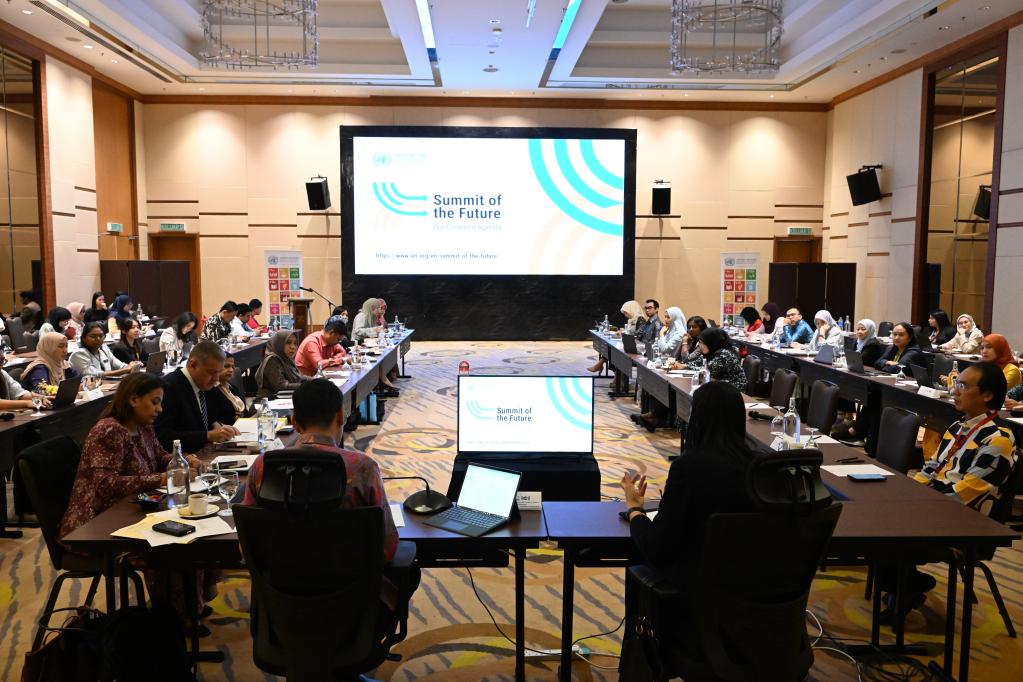
Take Action
09 September 2023
Act Now for Our Common Future
Embrace the possible that’s the call of the 17 Sustainable Development Goals, a blueprint for a better world.
Everyone can join the global movement for change.
ActNow is the United Nations campaign to inspire people to act for the Sustainable Development Goals.
1 of 5
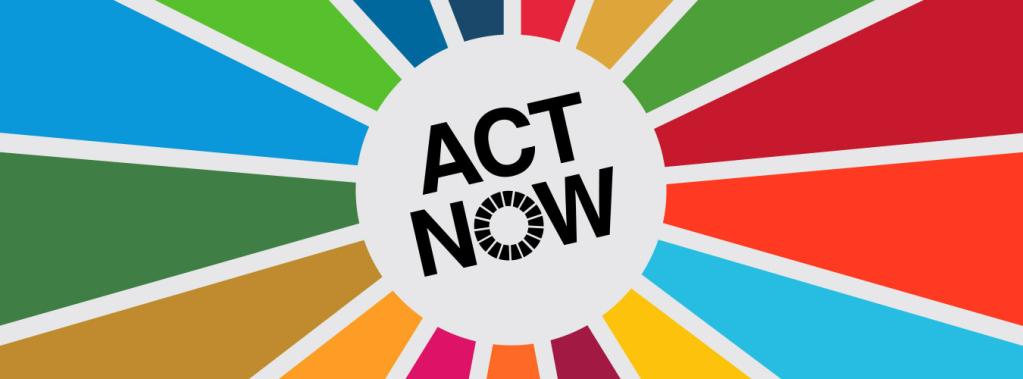
Story
27 June 2025
UN80: Our Achievements Should Give Us Hope for a Better Future
Eighty years ago this month, the Charter of the United Nations was signed in San Francisco, turning the page on decades of war and offering hope for a better future. For 80 years the United Nations has stood as the highest expression of our hopes for international cooperation, and as the fullest embodiment of our aspiration to end the “scourge of war.” Even in a world steeped in cynicism, this is a milestone worth acknowledging.The United Nations remains the only organisation of its kind, and the only one to have endured for so long. That longevity is remarkable when we consider the context of its founding: assembled from the rubble of not one, but two global cataclysms. Its predecessor, the League of Nations, had collapsed in disgrace.No organisation is flawless. But to paraphrase the second Secretary-General, Dag Hammarskjöld: the United Nations was created not to take humanity to heaven but to save us from hell. In that mission, it has not failed.We continue to witness heart-wrenching scenes of war—in Gaza, Sudan, Ukraine and elsewhere. The recent escalation between Iran and Israel is a stark reminder of the fragility of peace particularly in the tension-prone Middle East region. Yet amid the violence, we have managed to avert a third global war. In a nuclear age, that is an achievement we can never take for granted. It is one we must preserve with the full force of our efforts. Over the past eight decades, much of human development also bears the direct imprint of the United Nations. Consider the success of the Millennium Development Goals, adopted in 2000 by 189 Member States and more than 20 international organisations, which gave the world a shared roadmap for action. By 2015, compared to 1990, extreme poverty was more than halved. Child mortality had fallen by nearly 50 percent. And millions of children — especially girls who had long been denied the right — had entered school for the first time.Now, as we strive to achieve the Sustainable Development Goals, we must build on that legacy of progress. We must continue efforts to eradicate poverty and hunger, achieve universal health coverage and produce and consume sustainably.There is another story of progress, often overlooked: the dismantling of empire. Eighty years ago, colonialism cast its shadow over much of the world. Today, more than 80 former colonies across Asia, Africa, the Caribbean, and the Pacific have gained independence and joined the United Nations. That transition, supported and legitimised by this Organisation, reshaped the global order. It was a triumph of self-determination, a profound affirmation of the Charter's most fundamental principle: the sovereign equality of all States.Evolving for the futureThe world has changed dramatically since 1945. Today, the Organisation faces a deepening liquidity crisis. Despite the promise of the 2030 Agenda for Sustainable Development, progress has been uneven. Gender equality continues to elude us. Our pledge to limit global temperature rise and protect our planet is slipping beyond reach. These setbacks do not warrant diminished ambition but greater resolve. The United Nations has always shown its worth in times of crisis. Its founders had witnessed humanity at its most destructive and responded not with despair, but with boldness. We must draw on these achievements.The spirit of San Francisco was not utopian. It was grounded in a sober understanding of what was at stake. It held that, even amid deep division, nations could still choose cooperation over conflict and action over apathy. We saw that spirit last September, when world leaders gathered in New York for the Summit of the Future. After difficult negotiations, they adopted the Pact for the Future and its annexes—the Declaration on Future Generations and the Global Digital Compact—by consensus. In doing so, they pledged to renew multilateralism for a world more complex, connected, and fragile than the one imagined in 1945.That spirit endures today. It lives in the resolve of 193 Member States, in the integrity of international civil servants, and in the quiet determination of those who believe firmly in the promise of the Charter. It is carried forward by the Secretary-General’s UN80 initiative, which calls on us to deliver better for humanity; and to look to the future with adaptability and hope.As we mark this anniversary, we must rekindle the call for unity and solidarity that rang out from San Francisco 80 years ago. We built a world order once, in the ruins of war. We did so with vision and urgency. Now, again, we find ourselves at a moment of consequence. The risks are high. So too is our capacity to act.
1 of 5
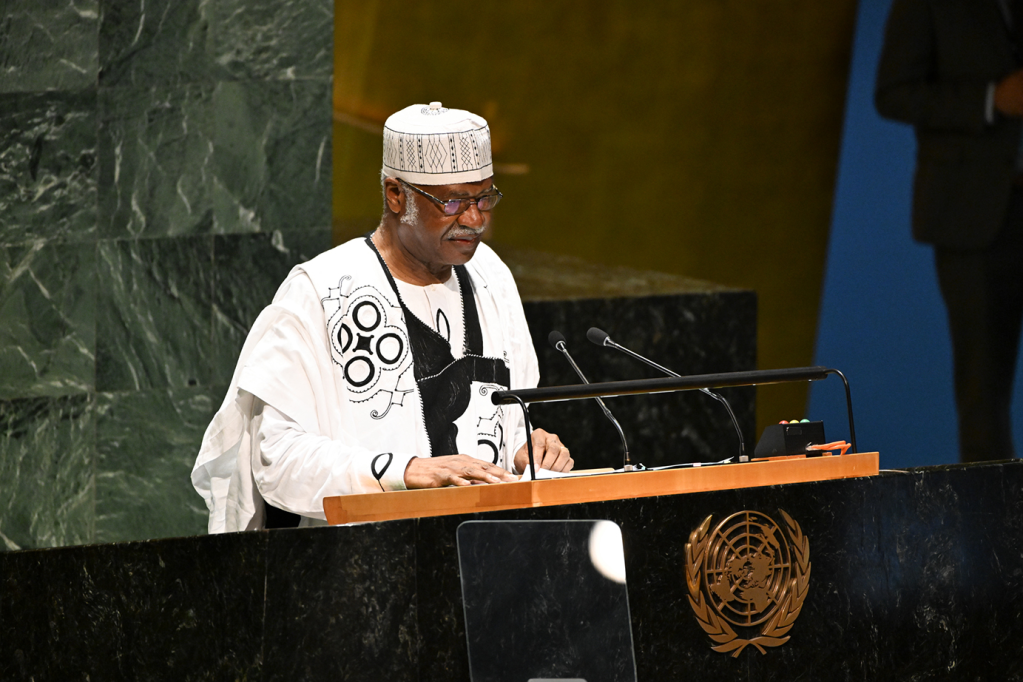
Story
20 June 2025
Secretary-General's message: World Refugee Day
Today, we recognize the millions of refugees forced to flee war, persecution, and disaster.Every individual carries a story of profound loss – of a family uprooted and a future upended. Many face closed doors and a rising tide of xenophobia.From Sudan to Ukraine, from Haiti to Myanmar, a record number of people are on the run for their lives – while support is dwindling. And host communities, often in developing countries, are shouldering the greatest burden.This is unfair and unsustainable.But even as the world falls short, refugees continue to show extraordinary courage, resilience and determination.And when given the chance, they contribute meaningfully – strengthening economies, enriching cultures, and deepening social bonds.On this World Refugee Day, solidarity must go beyond words.Solidarity must mean boosting humanitarian and development support, expanding protection and durable solutions such as resettlement, and upholding the right to seek asylum – a pillar of international law. It must also mean listening to refugees and ensuring they have a voice in shaping their futures.And it must mean investing in long-term integration through education, decent work, and equal rights.Becoming a refugee is never a choice. But how we respond is. So let us choose solidarity. Let us choose courage. Let us choose humanity.
1 of 5
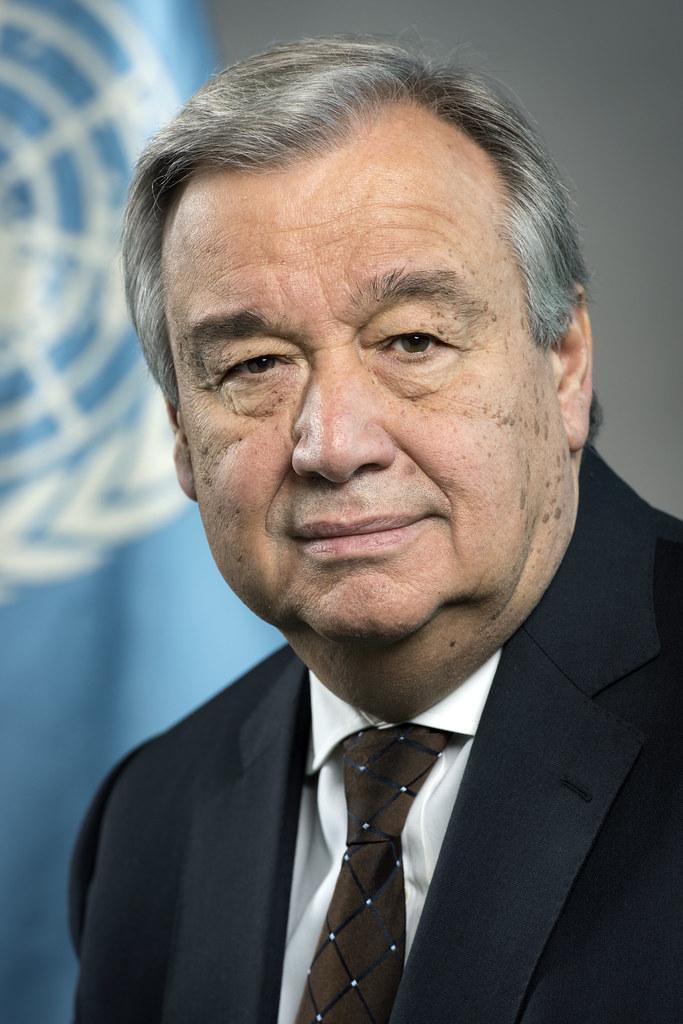
Story
03 June 2025
ASEAN Youth lead Change with UN partnership in Kuala Lumpur
The grand ballroom of Crowne Plaza Kuala Lumpur reverberated with the vibrant voices of young changemakers from across Southeast Asia as the 4th ASEAN Youth Dialogue (AYD) concluded a transformative week-long program under the theme of “Youth for a Sustainable Future: Empowering Inclusion and Driving Change in ASEAN.”Organized by the Ministry of Youth and Sports Malaysia in conjunction with Malaysia’s ASEAN Chairmanship under the national theme “Inclusivity and Sustainability”, the Dialogue saw 85 youth leaders from ASEAN member states and Timor-Leste convene to shape regional development through their shared aspirations. The Dialogue stood apart not only for its powerful youth-led agenda, but also for the significant role played by the United Nations in Malaysia, Singapore and Brunei Darussalam — the dialogue’s strategic partner—in steering discussions around global and regional futures, intergenerational justice and sustainable development. Malaysia-UN: A Strategic Anchor for ASEAN YouthThe United Nations in Malaysia, Singapore and Brunei Darussalam, led by the UN Resident Coordinator’s Office and supported by UN agencies UNDP, UNICEF, UNFPA, and WHO, was instrumental in conceptualizing and curating thematic dialogue sessions grounded in the UN’s Pact for the Future—the visionary framework aimed at revitalizing global cooperation and ensuring a fairer, greener, and more secure world for future generations.“Youth are not just future leaders — they are leaders today. Their ideas, energy, and voices are essential to building a just, inclusive, and sustainable ASEAN. The United Nations remains steadfast in its support for youth across ASEAN and globally. Through initiatives like the UN Youth Strategy (Youth2030), the Youth Environment Living Labs (YELL) in Malaysia, and active engagement with national youth councils and parliamentarians, the UN ensures young people are not only heard but are shaping policies and solutions”, said Robert Gass, United Nations Resident Coordinator ad interim. As Robert Gass noted, the UN in Malaysia continues to work hand-in-hand with youth, providing platforms for leadership, innovation, and advocacy — because empowering youth is essential to achieving the Sustainable Development Goals and creating a future that leaves no one behind.As a strategic partner, the United Nations in Malaysia, Singapore and Brunei Darussalam worked closely with the Ministry of Youth and Sports to ensure that each dialogue session was not only informed by evidence-based policy insights but also inclusive of youth voices that often go unheard in decision-making spaces.“This Dialogue is not just about listening to youth; it’s about placing them at the heart of transformative policymaking for ASEAN,” said Dr. Richard Marshall, Senior Economist at the Office of the UN Resident Coordinator, during the Dialogue’s opening session. “Through the Pact for the Future, we are amplifying the agency of young people to shape policies today for a sustainable tomorrow.”Future Forward: Youth at the Heart of the PactDr. Marshall’s session, “Future Forward: ASEAN Youth Shaping the World We Want”, spotlighted the significance of Chapter Four: Youth and Future Generations of the Pact. Participants delved into how youth can be catalysts in achieving the Sustainable Development Goals (SDGs) while confronting issues like climate injustice, education inequality, and economic precarity. By grounding the conversation in the SDG progress in ASEAN, the session empowered youth to speak on intergenerational equity and participate meaningfully in policymaking processes—mirroring the Dialogue’s larger mission of shaping the ASEAN Youth Resolution presented to ASEAN leaders on 26 May 2025. Championing the Right to a Clean and Just FutureIn another standout session, the United Nations Development Programme (UNDP), through a collaboration between Agents of Change: Youth and Media for Responsible Business Practices (AOC) and the Youth Environment Living Labs (YELL), explored how youth can hold businesses accountable for adverse environmental impacts in the context of the Right to a Clean, Healthy and Sustainable Environment (R2HE). “I want you to think about your role as rightsholders — how do you recenter communities and challenge the existing power dynamics inherent to the business ecosystem?” asked Jehan Wan Aziz, Rule of Law Lead at UNDP Malaysia. Building on this, co-facilitator Lim Su-Jin from YELL guided participants through critical discussions on how efforts to protect our biodiversity, the foundation of all life intrinsically linked to everything we have produced or manufactured, should be grounded in equity and justice. Complementing these discussions, Mark Liao from Sarawak Eco Warriors led hands-on activities that motivated participants to reflect and think about how environmental impacts have affected them, and what a shared declaration on R2HE might mean for the region. Inclusion and Identity: A Vision for ASEAN’s YouthUNICEF Malaysia, together with Architects of Diversity (AOD), hosted a unique dialogue learning session that created space for diverse youth to share their lived experiences across topics of inclusion, justice, and representation. For Jason Wee, the co-founder of AOD, “In this period of global instability, young people must step up to the tall order of ensuring the future world is one that includes and defends the dignity of all races and religions. Global peace requires a renewed approach at bridge building and counter-polarisation." With that vision in mind, Jason, alongside UNICEF experts, facilitated the session dynamically. The energies were flowing as the session emphasized that a truly sustainable future must reflect the diverse identities, struggles, and dreams of ASEAN youth. A simulation exercise grounded by the systems thinking approach gave young delegates the opportunity to uncover policymaking challenges and ideate solutions that is grounded in the empathy comprehensive understanding of issues, impact and collaboration to address the problems that matter to them. “We cannot plan for the future if we exclude the very people who will inherit it,” said Jessica Sercombe, UNICEF’s Disability and Gender Lead. “Youth-led change must be the default, not the exception.” Health, Choices and Well-Being: A Regional ImperativeClosing the thematic sessions was a powerful collaboration between WHO and UNFPA, focusing on youth leadership in regional health resilience and the rights to choice. With over half the ASEAN population under 35, the session emphasized youth as pivotal agents of health transformation—from reproductive rights to mental health and noncommunicable diseases (NCDs). Dr Rabindra Abeyasinghe, WHO Representative to Malaysia, Brunei Darussalam and Singapore and Tengku Aira Tengku Razif, Assistant Representative of UNFPA delivered keynote addresses, framing bodily autonomy, life-cycle approach to demographic resilience and health equity as fundamental rights for a sustainable ASEAN.In his address, Dr Rabindra Abeyasinghe said “Good health is an asset that needs to be protected throughout life and investing in your health is not a burden rather an opportunity. It’s a smart, long-term strategy for yourself and your country’s prosperity. If we want a resilient and prosperous ASEAN, we must start here with ourselves and with the health and well-being of its citizens through youth ownership and engagement in health programmes.” Liyann Ooi, Technical Officer for Behavioural Science, WHO led a thought-provoking and high-energy session that turned the spotlight on everyday behaviours shaping health outcomes. She unpacked the science behind how youth can build and spread healthier habits. The session also saw ASEAN youth leaders making personal health pledges, take part in an energizing dance break and committing to stronger habits for health, resilience and leadership. This was followed by a lively panel discussion moderated by Liyann, made up of young changemakers and experts, Arissa Jemaima Ikram, Founder & Executive Director, Doctors on Ground, Dr Collins Santhanasamy – Founder, Youth4DRR, Dr Vilashini Somiah – Senior Lecturer (Gender STudies, Univery of Malaya and Siti Aishah Hassan Hasri - Founder SPOT Community Project, shared strategies to better integrate youths into national and regional health systems. “Resilience isn’t built in isolation—it is grown through inclusion, investment, and intergenerational solidarity,” said Dr Vilashini Somiah, anthropologist and gender studies expert from Universiti Malaya, during the panel. From Dialogue to Action: Influencing the ASEAN Youth ResolutionThe week-long exchange of insights, ideas, and lived experiences culminated in the ASEAN Youth Resolution, a document that embodies the spirit of this Dialogue. Informed by the UN-led sessions and the Pact for the Future, the Resolution was presented to ASEAN Leaders during the ASEAN Summit Interface with Youth, asserting the role of young people as essential partners in shaping the region’s collective destiny. Looking Ahead: A Legacy of CollaborationAs the curtains fall on the 4th ASEAN Youth Dialogue, one message resounds with clarity: Youth are not waiting for change, they are leading it.Thanks to the strategic partnership between the Ministry of Youth and Sports Malaysia and the United Nations in Malaysia, the Dialogue did more than convene—it catalyzed. It empowered young leaders with the knowledge, networks, and tools to become architects of a more just, inclusive, and sustainable ASEAN.
1 of 5
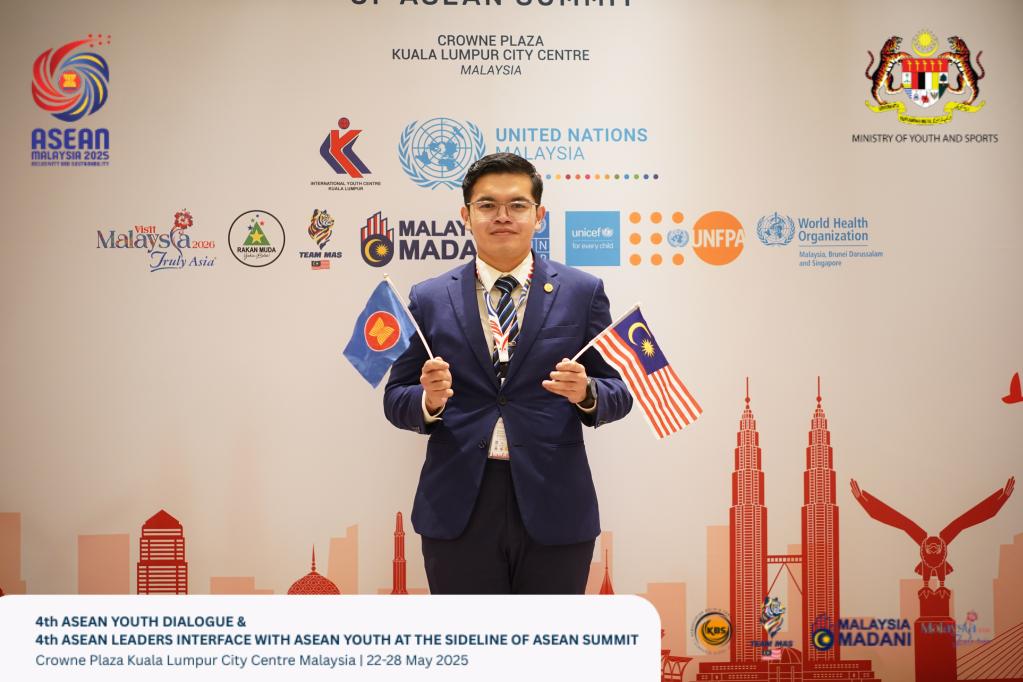
Story
02 May 2025
UN Country Results Report Malaysia 2024: Consolidating SDG Progress and Enabling Malaysia’s Development Transition
Download the report hereOperating within the framework of the UN Sustainable Development Cooperation Framework 2021–2025 (CF) and leveraging data from the UN INFO platform, this report reflects the momentum and progress achieved in 2024. In line with the UN development system reforms, the UN Country Team (UNCT), under the leadership and coordination of the UN Resident Coordinator, continues to deliver measurable and impactful results.In 2024, the UNCT in Malaysia, working closely with the Government, private sector, civil society, academia, and media, focused on protecting vulnerable groups, advancing inclusive public services, and promoting decent work and human rights in business. Key priorities included disability-inclusive health systems, tobacco control, HIV response, child protection, and youth engagement through initiatives like YELL spell out. The UNCT also drove environmental sustainability through biodiversity and forest conservation and sustainable energy innovation. Through the MY-SDG Trust Fund, USD 3.4 million was allocated across 14 grassroots projects to advance the SDGs and support at-risk communities.The UNCT remains committed to working closely with the Government, civil society, vulnerable populations, the private sector, and other stakeholders to help accelerate progress towards the SDGs and create a more inclusive and sustainable future for all in Malaysia. This commitment will be reflected in the development of the next UN Sustainable Development Cooperation Framework (2026-2030), which will guide the UN’s collective support to Malaysia’s national development priorities and its efforts to achieve the 2030 Agenda.
1 of 5
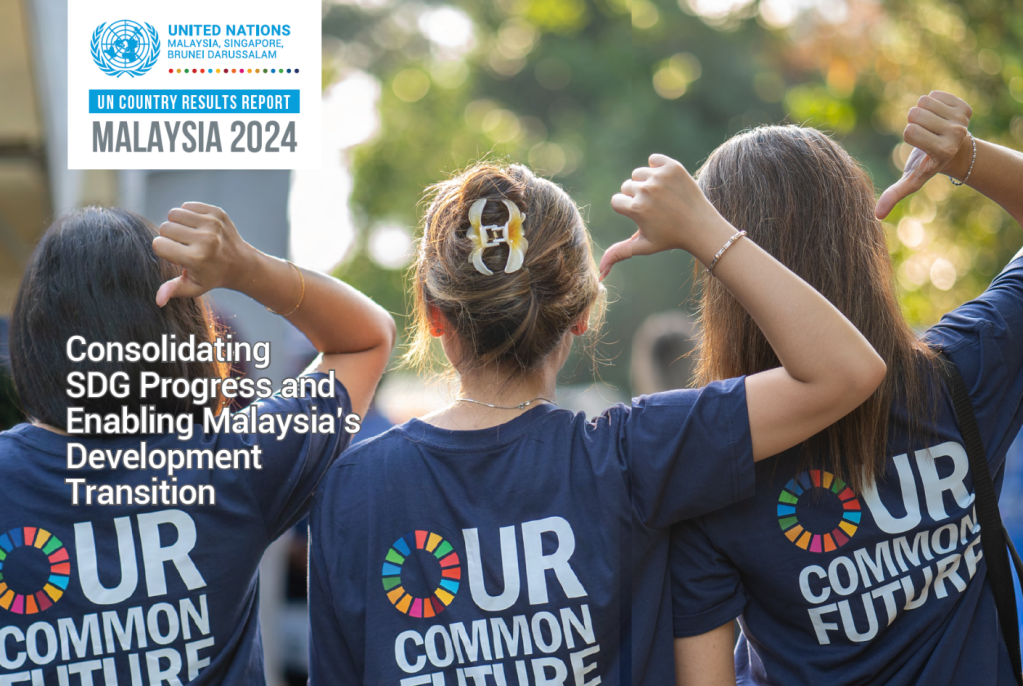
Story
26 March 2025
Call for Applications for UN Women WEPs Corporate Action Lab Malaysia
UN Women, TalentCorp and LeadWomen have joined forces to launch the first Malaysia Women’s Empowerment Principles Corporate Action Lab (WEPsCAL) -- a cohort-based initiative supporting companies to develop innovative solutions and implement and track actions to promote gender equality with the support of like-minded organisations. The WEPsCAL will run over a period of 6-9 months and each Corporate Action Lab centers around a specific challenge based on the thematic areas of the WEPs. It is a key action initiative of the UN Women Gender Action Lab: Innovation and Impact for Gender Equality in the Asia-Pacific, implemented in partnership with the Government of Australia Department of Foreign Affairs and Trade. In line with the Malaysia MADANI Economic Framework to increase the female labour participation rate in Malaysia to 60% by 2033, this WEPsCAL brings together a cohort of businesses to develop and pilot-test new solutions to the challenge of increasing women’s participation and retention in the workforce by implementing family-friendly workplace policies and practices.To launch the first ever Corporate Action Lab in Malaysia, we are seeking a committed group of pioneering corporate changemakers ready to take action and shape the future of the Malaysian workforce. Apply to join us today!How Does the WEPsCAL Work?WEPsCAL aims to encourage a fresh approach to addressing systemic challenges through tools like design thinking, cross-cohort sharing and multi-stakeholder support through a selected area of focus also known as a thematic area. Leaning into the definition of a “lab”, WEPsCAL provides companies with the opportunity to experiment and develop new strategies and solutions to fit their own unique needs and gender equality goals, ultimately contributing to increased business productivity and innovation, brand recognition and talent acquisition and retention, as well as broader inclusive economic growth in Malaysia. It is entirely free to participate in the WEPsCAL, though companies will be expected to commit resources to implement their proposed actions as necessary. At a glance, the program aims to:Address persistent challenges to gender equality in the world of work by leveraging peer learning in a cohort and technical expertise and guidance provided by UN Women and partners, leveraging the globally recognized framework of the WEPs as well as tailored innovation methodologies.Support companies to co-create, pilot and track learnings and progress on innovative solutions tailored to address specific business needs.Build a pool of WEPs Changemakers and Champions to document and share via national, regional and global multi-stakeholder platforms what works for advancing gender equality in the work of work and inspire others to take action.WEPsCAL provides the tools and support necessary to achieve these aims, driving both social impact and business success. By participating in WEPsCAL, your company will not only contribute to a more equitable society but also strengthen its business performance and long-term sustainability via solutions of your own making.What do you get by joining the WEPsCAL? ✅ Guided use and analysis of WEPs Gender Gap Analysis Tool ✅ Customized action plan and KPIs to boost gender equality and sustainable business growth ✅ Dedicated capacity building, 1-1 problem solving sessions, and expert support throughout the Lab ✅ Connections to innovators and strategic partners to support your solutions ✅ National and regional recognition for your efforts and leadership ✅ A unique peer learning approach and facilitated cross-country exchange to share best practices, validate new solutions, and go further, fasterHow To Apply 📌 Deadline: 7 April 2025 💻 Apply now by filling out the Application Form: hereApplications will be assessed by the programme team and all applicants will be notified of selection results by April 9, 2025.Need more Information?To find out more about WEPsCAL, read our FAQs document, and watch a recording of the Information Session, visit https://linktr.ee/wepscalmy. For inquiries, please reach out to Amy Baum, Programme Specialist, Women’s Economic Empowerment, UN Women Regional Office for Asia and the Pacific at amy.baum@unwomen.org.For inquiries, please reach out:Amy Baum
Programme Specialist, Women’s Economic Empowerment
UN Women Regional Office for Asia and the Pacific
Email: amy.baum@unwomen.org.
Programme Specialist, Women’s Economic Empowerment
UN Women Regional Office for Asia and the Pacific
Email: amy.baum@unwomen.org.
1 of 5
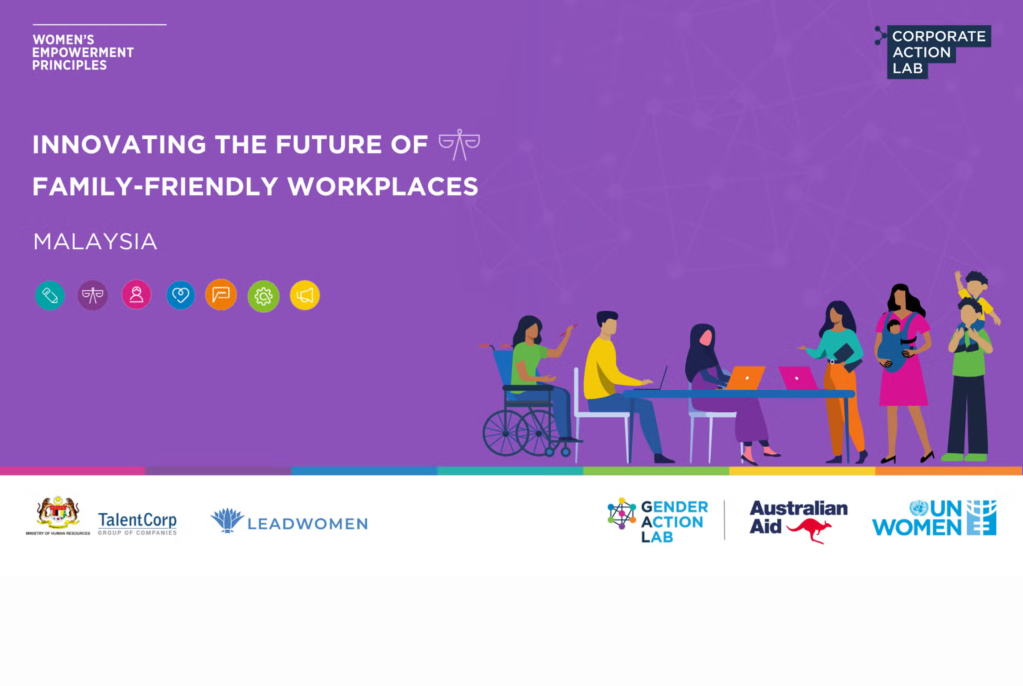
Press Release
21 June 2024
Milestone World Refugee Day marker with first ever commemorative Khutbah sermon in mosques
For the first time, mosques across the Federal Territories of Malaysia will carry a specially-written World Refugee Day khutbah sermon for the Muslim community prayer service held once a week on Fridays. This will be delivered today during the Friday prayer service.UNHCR, the UN Refugee Agency engaged Malaysian religious authorities to develop a khutbah sermon for the Friday prayer service, with messages of compassion, solidarity, and support for refugees. This is an unprecedented development in Malaysia, marking significant strides in more closely engaging Malaysian communities of the Muslim faith.The khutbah sermon will be delivered where the Friday prayer service is performed in all mosques under the administration of the Islamic Religious Department of the Federal Territory (JAWI) within the federal territories of Kuala Lumpur, Putrajaya, and Labuan in Malaysia.The Friday prayer service khutbah sermon is delivered by the prayer leader, or Imam, to the congregation ahead of the commencement of the weekly prayers. In Malaysia, these sermons are standardised and coordinated by authorised state religious bodies.The special World Refugee Day khutbah sermon, titled "Humanitarian Crisis: A Test for Muslims", referenced global statistics on the refugee crisis worldwide and what it meant to be forced to flee.According to the text, “Refugees are not people who emigrate to seek a better life but rather leave their homeland to save their lives from oppression and tyranny involving race, religion, nationality, or social group membership. They deserve proper treatment and assistance to continue their survival.”The sermon called for compassion, and for Muslims to welcome refugees with humanitarian support.It stated, “Refugees are those who migrate to save their lives and religion from oppression and tyranny, not to seek a better life. Second: We are called to help alleviate the burden of refugees with any form of assistance such as shelter, food supplies, financial contributions, clothing, medical needs, and so forth. Third: Allah SWT is actually testing our faith in Him with the arrival of refugees and wants to elevate our status to become true believers (by protecting and helping refugees).”World Refugee Day is commemorated each year on 20 June to honour the millions of people around the globe who are forced to flee violence and persecution. The world community celebrate refugees’ remarkable fortitude and capacity for renewal, despite the daunting challenges they face.Forced displacement surged to historic new levels across the globe last year and this, according to the 2024 flagship Global Trends Report from UNHCR. The rise in overall forced displacement – to 120 million by May 2024 – was the 12th consecutive annual increase and reflects both new and mutating conflicts and a failure to resolve long-standing crises.In his World Refugee Day message, UN High Commissioner for Refugees, Filippo Grandi called on everyone to do more to show solidarity with refugees and work towards a world where they are welcomed, or can return home in peace.“At a time of division and upheaval, refugees – and those hosting them – need us all to pull together. We live in a world where conflicts are left to fester. The political will to resolve them seems utterly absent. And even as these crises multiply, the right to seek asylum is under threat,” said Grandi.Grandi said that a longer-term approach is key – sustainable action in education, energy, food security, employment, housing and more, working with states, development partners and others.He added, “Let’s not leave refugees in limbo; instead, let’s give them the chance to use their skills and talents and contribute to the communities that have welcomed them.“On World Refugee Day and every day, with courage, commitment and compassion, solutions are within our grasp.”Visit the JAWILink is external site for the full text of the World Refugee Day khutbah sermon for the Friday prayer service.
1 of 5
Press Release
21 June 2024
#WorldRefugeeDay: UNICEF’s statement on access to education for refugee and stateless children
On World Refugee Day, we recognize the challenges faced by refugee children globally, who represent over 40 per cent of the world's displaced population. Of the 41,000 refugee children of school-going age registered with UNHCR in Malaysia, none of them have access to formal education. Only 34 per cent have access to informal education through alternative learning centres. This lack of access to formal education is also experienced by many stateless children in Malaysia.Education is a fundamental right, yet too many refugee and stateless children are not in school. Excluded from the education system, children are left without recognized credentials, social networks, mentors, or peer support. Additionally, their lack of legal status also puts them at risk of arrest and detention. As of September 2023, more than 1,400 girls and boys were reportedly held in immigration detention centres in Malaysia. As a result, refugee and stateless children struggle to live dignified lives, stunting their ability to grow to their full potential. All children, regardless of status, should have the opportunity to learn in school, in safety and without fear.The Convention on the Rights of the Child encompasses four interconnected and fundamental principles of non-discrimination, upholding the best interest of the child, the right to life, survival and development, and respect for the views of the child. As we commemorate World Refugee Day, let's remember that every child, no matter their circumstances, has a right to essential support and services like healthcare, education, and social protection. Together, we can work towards strengthening inclusive national systems that benefit all children in line with the Madani Government’s Ihsan, or Compassion principle.
1 of 5
Press Release
25 March 2024
Statement by UNICEF Malaysia on the Citizenship Amendment Bill updates
Read the original statement hereUNICEF commends the government’s welcome steps to not proceed with proposed amendments relating to Malaysia-born stateless children, and foundlings. This decision reflects a responsiveness to public concerns and underscores a commitment to upholding the rights and welfare of vulnerable populations, especially children. UNICEF acknowledges and supports such actions that prioritize the protection of children's rights, aligning with international conventions such as the Convention on the Rights of the Child.It is equally important to recognize that the remaining regressive amendments will impact certain groups of children and pose a threat to their fundamental rights. The proposed amendments, if implemented, risk depriving these children of essential rights to healthcare, education, and family unity. To ensure the protection of children's rights and uphold the principles of equality and inclusivity, it is imperative that these remaining amendments undergo comprehensive review by a Parliamentary Special Select Committee (PSSC). This process will enable a thorough examination of the potential impact of the amendments and allow for the consideration of diverse perspectives and stakeholder input. By subjecting these amendments to full parliamentary scrutiny, we can uphold the integrity of the legislative process and make the best decision for all children in Malaysia.UNICEF stands ready to support the government in this process, building on partnership and joint commitment for realizing children's rights, for an inclusive society where no child is left behind.
1 of 5
Press Release
28 November 2023
KPWKM and UN Malaysia light up Menara Kuala Lumpur in orange - launching the International Day for the Elimination of Violence against Women (IDEVAW) and 16 Days of Activism
Kuala Lumpur, 24 November – KL Tower was lit up in orange today to celebrate this year’s International Day for the Elimination of Violence against Women (IDEVAW) and 16 Days of Activism, beginning Saturday the 25th of November. The evening launch event, organised by The United Nations Population Fund (UNFPA) Malaysia, brought together key stakeholders in the arena towards ending Gender Based Violence (GBV) to collectively and symbolically launch the global call to end violence against women in Malaysia.
Present at the event were Yang Berhormat Dato’ Sri Nancy Shukri, Minister of Women, Family & Community Development (KPWKM), Karima El Korri, United Nations Resident Coordinator for Malaysia, Singapore & Brunei Darussalam, Dr. Asa Torkelsson, UNFPA Malaysia’s Country Representative, Datuk Dr Maziah Che Yusoff, Secretary-General of the Ministry of Women, Family and Community Development and Dr Wan Nur Ibtisam Binti Wan Ismail, Director General of the Department of Women’s Development, alongside other key representatives from government, academia, and civil society.
In her welcoming remarks, Dr Asa Torkelsson began by highlighting the dark reality still faced by millions of women and girls today: “Violence against women and girls sadly remains one of the most pervasive human rights violations that continues to happen. According to the United Nations, globally, 736 million women - that is almost 1 in 3 - have been subjected to physical or sexual intimate partner violence, non-partner sexual violence, or both at least once in their lifetime.” She acknowledged the strides that Malaysia had made so far to address social, legislative and enforcement gaps in the battle against gender-based violence, and highlighted Malaysia’s regional successes including being the first Asian country to introduce a specific law on domestic violence (the Domestic Violence Act 1944), and being the first to develop the trailblazing One Stop Crisis Center (OSSC) to support victims of gender-based violence.
In the Minister’s keynote speech, YB Dato’ Sri Nancy Shukri reminded the audience that the impacts of violence against women were not limited to women, but had widespread societal ramifications. Not only were survivors less likely to participate meaningfully in their communities or labour force, she revealed that gender based violence also had the ability to break down family structures and perpetuate generational cycles of violence. Ultimately, the stunted development of women and their families can impact the socio-economic development of communities and countries as a whole.
“UN Women estimated that the global cost of violence against women amounted to a whopping 1.5 trillion US dollars, stemming from loss of employment and productivity, and major resources required for social services, the justice system, health-care agencies and employers. As a nation or as a global community, we are all worse off when women are disempowered,” she said.
In line with Malaysia’s international commitments to tackling violence and discrimination against women, the Minister described several ongoing government initiatives to address domestic violence: “Operationally, a Committee on Addressing Domestic Violence was established as an institutionalised multi-stakeholder platform for implementing and monitoring concerted efforts to address domestic violence. We are also in the final stages of updating JKM’s Guideline on Handling Domestic Violence Cases, which serves as a reference and guidance to the relevant agencies to coordinate and handle the cases effectively.” The Minister highlighted Malaysia’s recent strides in enacting gender-focused policy, including the Sexual Harassment Act, the Anti-Stalking Section in the Penal Code, and amendments to the Employment Act. She also cited the government’s commitment to gender-responsive budgeting, and lauded the ongoing efforts of dedicated Gender Focal Teams within each Ministry. In line with legislative developments, she hoped to continue launching nationwide sexual harassment awareness roadshows in the new year, especially upon the establishment of the new Anti-Sexual Harassment Tribunal. Lastly, she stressed that addressing violence was a shared responsibility between the government, the private sector and all Malaysians: “We must all play a part in ensuring our workplaces are environments of safety, where there is zero tolerance for harassment or violence of any kind. The private sector has an immense role to play in ensuring that workplace culture proactively evolves to become inclusive, non-discriminatory and in consideration of unpaid care work duties of all employees - female as well as male.”
A panel session titled “Identifying and Strategising Key Social and Legislative Investments needed towards ending Violence against Women in Malaysia” was then held, moderated by Tehmina Kaoosji, Independent Broadcast Journalist. The session drew on the expertise and experience of panellistsACP Siti Kamsiah Hassan, Principal Assistant Director, D11 Unit, PDRM, YBrs Dr Wan Nur Ibtisam, Director General, Women’s Department, KPWKM, Tengku Aira Tengku Razif, Assistant Representative, UNFPA Malaysia, and Sumitra Visvanathan, Executive Director, WAO. The launch event concluded with a press conference featuring the Minister Yang Berhormat Dato’ Sri Nancy Shukri, Datuk Dr Maziah Che Yusoff and Dr Wan Nur Ibtisam from the Ministry of Women, Family and Community Development, alongside Dr Asa Torkelsson and Tengku Aira Tengku Razif representing UNFPA Malaysia.
###
View photos from the event here.
ABOUT UNFPA
The United Nations Population Fund (UNFPA) is an agency under the UN that aims to deliver a world where every pregnancy is wanted, every childbirth is safe and every young person's potential is fulfilled.
MEDIA ENQUIRIES
For further inquiries or any other related media matters, kindly please contact UNFPA Malaysia at malaysia.media@unfpa.org
1 of 5
Press Release
24 October 2023
United Nations Day Malaysia 2023
The United Nations in Malaysia commemorated the 78th anniversary of the United Nations (UN) today in Taman Tugu, Kuala Lumpur.
The event, under the theme Act Now on UN Day and Every Day! amplifies the Act Now! campaign, aimed to inspire people to act for the Sustainable Development Goals and commit to a healthy planet, an inclusive economy, a just society and a world working together.
Leading the commemoration were Ms. Karima El Korri, the UN Resident Coordinator for Malaysia, Singapore, and Brunei Darussalam, and YB Datuk Mohamad bin Alamin, Deputy Minister of Foreign Affairs, Malaysia. The event witnessed the participation of 160 UN staff and over 150 guests, including government officials, members of the Diplomatic Corps, representatives from civil society, youth organizations, religious leaders, academia, the private sector, and the media.
In her address, Ms. El Korri underscored the founding purposes and principles of the United Nations upheld in the organization’s Charter, and said: “As we look back on nearly eight decades of commitment to peace, security, human rights, and development, we acknowledge our successes and setbacks. And with unwavering resolve and resilience, the UN stands as a beacon of international unity and a source of hope for people around the world.”
The United Nations in Malaysia is comprised of 22 UN agencies of the UN Country Team (UNCT), all working in support of Malaysia's efforts to achieve inclusive and sustainable development. UN Resident Coordinator Karima El Korri said: “Malaysia’s unwavering commitment to globally agreed frameworks is unquestionable. We applaud the nation’s fresh perspective on the economy and society outlined in Malaysia Madani, Ekonomi Madani, and the many macro and local-level initiatives drive the country’s transformation. The establishment of the Malaysia-UN SDG Trust Fund is a testimony to the government’s commitment to engage all stakeholders. It is also proof of the strong trust in the United Nations as a results-driven partner.”
YB Datuk Mohamad bin Alamin extended his congratulations to the UN on its 78th anniversary and reiterated Malaysia's firm commitment to continued engagement with the UN. He stated, "Malaysia reaffirms its dedication to continuing cooperation with the UN and its member states, grounded in the principles of mutual respect and international law, as enshrined in the UN Charter.”
We also thank the UN in Malaysia for its continued work supporting the country in reaching its goals for a more sustainable and equitable future. The UN has accompanied us in our journey since independence, and we hope this partnership will continue to prosper.”
YB Datuk Mohamad bin Alamin added that Malaysia has always been an active participant in the UN, engaging with the global community through various means, from co-sponsoring resolutions to our continued support of UN peacekeeping missions, with over 800 personnel participating across various missions. Malaysia is also host to UN Global and Regional centres such as the WHO and UNDP Global Service Centres and UN Humanitarian Response Depot (UNHRD).
The UN Day event at Taman Tugu also featured the "Act Now!" storytelling session, where UN agencies in Malaysia enlightened the audience about their work in areas such as healthy aging, the care economy, sustainable tourism, immunization for hard-to-reach populations, refugee support, green urban spaces, promoting safe migration, inspiring small and medium-sized enterprises, and empowering children through disaster education. Participants also explored the Taman Tugu trail walks.
UN Day, celebrated every year on 24 October, commemorates the entry into force in 1945 of the UN Charter. It amplifies our common agenda and reaffirms the purposes and principles of the UN Charter that have guided us for the past 78 years.
-ends-
1 of 5
Latest Resources
1 / 11
Resources
19 February 2025
Resources
16 January 2025
Resources
05 December 2024
1 / 11

